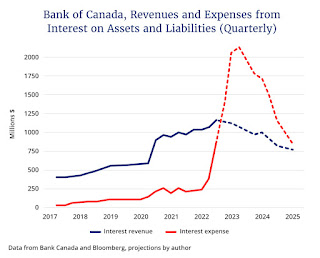A recent survey found almost half of American parents taking on increased debt to buy their children's back-to-school supplies
Another Reason to Ban Tik-Tok? | Ron Paul Institute | Ron Paul:
Aug 18, 2025 - "According to the July Consumer Price Index (CPI) report, prices rose by 2.7 percent over the past year, and by 3.1 percent when the 'volatile' food and housing sectors are removed from the calculation. Markets rose following the release of the CPI since the increase in price inflation was not as high as expected. This led to an increase in expectations that the Federal Reserve will cut interest rates next month.
"Of course, the CPI numbers are manipulated to understate the true rate, and effects, of inflation. One way this is done is by 'Chained CPI.' This is where the government does not consider consumers impacted by price increases that make their favorite products unaffordable if there are affordable substitutes available – as if government bureaucrats can determine what is and is not an adequate substitute for a good made unaffordable by the Federal Reserve.
"The official government figures do not take into account 'shrinkflation.' This is when a business responds to price inflation by reducing product size and otherwise reducing a good’s quality. Shrinkflation makes it appear that consumers are paying the same prices but in fact they are paying more since they are getting less of the product.
"Examples of 'shrinkflation” include increases in the size of cardboard toilet paper holders by 25 percent. This allows toilet paper companies to reduce the amount of paper per roll while maintaining the same number of rolls per package.
"Other examples of shrinkflation include using wider bottles with concave bottoms for liquid soap, thus enabling soap manufacturers to hide the 15 percent reduction in the amount of soap per bottle, substituting cheaper vegetable oil for dairy milk in chocolates, and substituting foam pool noodles with an 'angel' hair noodle that contains 40 percent less material. Shrinkflation also exists in the airline industry. Ticket prices may have remained steady, or even declined, but travelers now must pay a fee for many 'frills‘ that used to be included with the ticket, such as baggage check-in, on-flight food and beverage service, and seat selection.
"Those looking for evidence of how inflation is affecting Americans might want to stop looking at CPI reports and instead go on Tik-Tok and other popular social media sites. There they will find videos of parents highlighting the burden placed on the family budget by the skyrocketing price of school supplies. A survey by Bankrate found that 29 percent of family budgets were strained by the growing costs of school supplies, while a survey by Intuit Credit Karma found that 44 percent of parents were going into, or increasing, their family’s debt in order to buy their children school supplies. School supplies prices have even risen at big box retailers like Wal-Mart and Target. Even Dollar Tree has raised some prices to over a dollar!
"The reason so many parents are struggling to afford school supplies is not corporate greed, but the Federal Reserve’s inflationary policies. The best thing Congress can do for America’s families is cut spending, thus reducing the pressure on the Fed to monetize the federal debt thus further weakening the dollar.
"Congress should also reform the monetary system by passing the Audit the Fed bill and repealing all laws that discourage the use of competing currencies such as precious metals and cryptocurrencies.
"Sadly, even Tik-Tok videos of parents struggling to afford school supplies will likely not cause Congress to take these steps. Instead, the videos are more likely to cause Congress to renew efforts to ban Tok-Tok."
Copyright © 2025 The Ron Paul Institute. Permission to reprint in whole or in part is gladly granted, provided full credit and a live link are given.
https://ronpaulinstitute.org/another-reason-to-ban-tik-tok/



.jpg)



